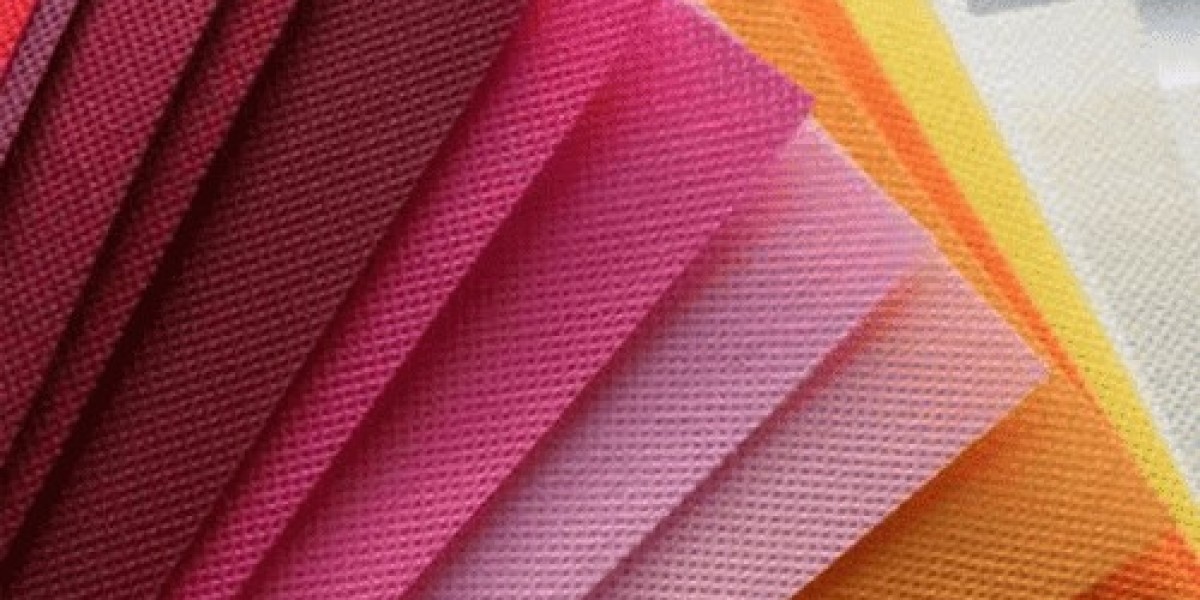In an era where personal health and hygiene take center stage, the materials used in hygiene products play a crucial role in not just performance, but also safety. Among the various materials available, PP spunbond nonwoven fabric stands out due to its numerous benefits. As a product of modern textile technology, this innovative fabric is utilized in several hygiene applications, from medical supplies to personal care items.
Understanding PP Spunbond Nonwoven Fabric
Before delving into its applications in hygiene products, it is essential to understand what PP spunbond Non woven fabric is. PP, or polypropylene, is a thermoplastic polymer that is produced through a process known as spunbonding. This involves extruding molten polymer filaments that are laid down in a web formation and bonded through heat. The resulting fabric is lightweight, durable, and offers effective barrier properties. It is distinct from traditional woven fabrics as it does not require yarns, which allows it to be produced more rapidly and at a reduced cost.
The Rise of Nonwoven Fabrics in Hygiene Products
Nonwoven fabrics have gained significant traction in the hygiene industry due to their versatility and unique characteristics. Unlike traditional fabrics, nonwoven fabrics can be designed to be absorbent, waterproof, or even antimicrobial, depending on the specific needs of an application. Furthermore, the ease of production allows manufacturers to cater to the varying demands of the market effectively. One of the most prominent applications of nonwoven fabrics is in hygiene products, where the focus remains on health, safety, and comfort.
Key Applications of Nonwoven Fabric in Hygiene Products
Medical Supplies: The healthcare sector relies heavily on hygiene products that are both effective and sterile. PP spunbond nonwoven fabric is commonly used for manufacturing surgical gowns, drapes, and masks. The fabric offers excellent breathability while preventing liquid penetration, making it ideal for operating rooms where infection control is paramount. Additionally, its lightweight nature and comfort ensure that healthcare professionals can perform their duties without feeling constrained.
Personal Care Items: Nonwoven fabric has also made its way into everyday personal care products. Items such as sanitary pads, adult incontinence products, and baby diapers commonly utilize PP spunbond nonwoven fabric due to its high absorbency and barrier properties. This fabric can be engineered to provide the necessary softness and comfort while ensuring leak protection for users.
Wipes: Disposable wipes have become a staple in homes and businesses alike, especially with the increased emphasis on cleanliness. Many wipes are made from PP spunbond nonwoven fabric, which allows for the perfect combination of strength and softness. The fabric’s non-toxic nature and ability to be chemically treated mean that wipes can be infused with antibacterial agents, making them suitable for various purposes—from cleaning surfaces to personal hygiene.
Protective Apparel: Beyond medical gowns, Non woven fabric spunbond is also employed in manufacturing various types of protective apparel. This ranges from coveralls and aprons to isolation gowns, serving as protective barriers against pathogens and contaminants. The fabric's mechanical strength and fluid resistance make it a favored choice for industries that require high hygiene standards, such as food processing and pharmaceuticals.
Advantages of Using PP Spunbond Nonwoven Fabric
Cost-Effectiveness: As a leading nonwoven fabric manufacturer, producing PP spunbond nonwoven fabric is often more cost-effective than traditional woven fabrics. This reduction in manufacturing costs allows for more accessible pricing of hygiene products, benefiting consumers and manufacturers alike.
Customization: The versatility of nonwoven fabrics means they can be customized in weight, thickness, and texture. This allows manufacturers to create products tailored precisely to specific applications and market needs, enhancing customer satisfaction.
Eco-Friendly Options: Many nonwoven fabric manufacturers are now focusing on sustainability. Options such as biodegradable and recyclable PP spunbond fabrics are entering the market, allowing consumers to maintain hygiene standards without compromising environmental responsibilities. This shift is particularly appealing to eco-conscious consumers looking for sustainable hygiene options.
Challenges and Considerations
While the benefits of PP spunbond nonwoven fabric are clear, manufacturers must also contend with challenges. The production of nonwoven fabrics involves energy consumption, and concerns regarding waste management need to be addressed. A commitment to sustainability will involve continuous innovation in sourcing raw materials and optimizing processes for lower environmental impact.
Furthermore, as the market grows, so does the competition. Non woven fabric manufacturer need to stay ahead by investing in research and development to enhance product quality and expand applications. Collaboration with research institutions and other industries can drive innovation, ensuring that hygiene products fulfill both current and future needs.
Conclusion
The significance of PP spunbond nonwoven fabric in the hygiene products industry cannot be understated. As a versatile, cost-effective, and customizable material, it fulfills a wide array of applications that meet modern standards for health and safety. From medical supplies to personal care items, this nonwoven fabric is becoming essential for products that prioritize consumer well-being.
As the global focus on hygiene continues to rise, the importance of effective materials like PP spunbond nonwoven fabric in delivering safe and efficient hygiene solutions is clearer than ever. Manufacturers must continue to innovate and explore sustainable practices to meet both market demands and environmental responsibilities. In doing so, they will not only enhance their own competitiveness but also contribute significantly to the health and hygiene of society.
Frequently Asked Questions (FAQs)
Can PP Spunbond Nonwoven Fabric be recycled?
Yes, PP Spunbond Nonwoven Fabric can be recycled, and many manufacturers are working on eco-friendly practices to support sustainability in the industry.
How does the manufacturing process affect the quality of nonwoven fabric?
The manufacturing process controls the fabric weight, thickness, and bonding methods, directly influencing the final product's quality, softness, and performance.
Is PP Spunbond suitable for sensitive skin?
Absolutely. The softness and hypoallergenic properties of PP Spunbond Nonwoven Fabric make it an excellent choice for products designed for sensitive skin, such as baby diapers and sanitary products.








